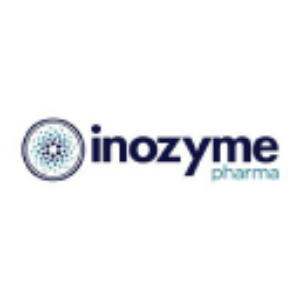Inozyme Pharma Receives Orphan Drug Designation for INZ-701 from the European Medicines Agency for the Treatment of ABCC6 Deficiency
Rhea-AI Summary
Inozyme Pharma (Nasdaq: INZY) announced the European Medicines Agency (EMA) granted Orphan Drug Designation to INZ-701 for treating ABCC6 Deficiency, a rare inherited disorder. This designation follows the earlier Orphan Drug Designation for this therapy for ENPP1 Deficiency. ABCC6 Deficiency can cause severe health issues, including vision loss and cardiovascular complications, with no approved treatments available. The Orphan Drug Designation may provide development incentives and a ten-year market exclusivity post-approval, fostering the potential for INZ-701 to be a first-ever therapy for this condition.
Positive
- Orphan Drug Designation granted by EMA for INZ-701 supporting market exclusivity.
- Potential to address a significant unmet medical need for ABCC6 Deficiency.
Negative
- No approved treatments currently exist for ABCC6 Deficiency, indicating inherent market risk.
- Challenges remain in initiating clinical trials and obtaining necessary regulatory approvals.
News Market Reaction 1 Alert
On the day this news was published, INZY gained 5.15%, reflecting a notable positive market reaction.
Data tracked by StockTitan Argus on the day of publication.
INZ-701 was previously granted Orphan Drug Designation by the U.S. Food and Drug Administration and European Medicines Agency for ENPP1 Deficiency
BOSTON, July 21, 2021 (GLOBE NEWSWIRE) -- Inozyme Pharma, Inc. (Nasdaq: INZY), a rare disease biopharmaceutical company developing novel therapeutics for the treatment of abnormal mineralization, today announced that the European Medicines Agency (EMA) has granted Orphan Drug Designation to INZ-701 for the treatment of ABCC6 Deficiency. INZ-701, an investigational enzyme replacement therapy (ERT), was granted Orphan Drug Designation by the U.S. Food and Drug Administration (FDA) and the EMA for the treatment of ENPP1 Deficiency.
ABCC6 Deficiency is a rare, inherited disorder that can present as generalized arterial calcification of infancy (GACI) type 2 in infants and as pseudoxanthoma elasticum (PXE) in children and adults. It is one of several disorders that features a significant decrease in plasma pyrophosphate (PPi) levels, a potent regulator of mineralization. In patients with ABCC6 Deficiency, the abnormal calcification caused by low PPi can result in vision loss and life-threatening cardiovascular complications, among other morbidities. There is no approved treatment for ABCC6 Deficiency.
“Obtaining Orphan Drug Designation from the EMA for the treatment of ABCC6 Deficiency marks another important step toward providing relief for patients who currently have no treatment options and positions INZ-701 to become the first-ever available therapy for this condition,” said Axel Bolte, MSc, MA, co-founder, president, and chief executive officer of Inozyme.
Orphan Drug Designation in the European Union (EU) is granted by the European Commission based on a positive opinion issued by the EMA Committee for Orphan Medicinal Products (COMP). To qualify, a therapeutic candidate must be intended to treat a serious condition that affects fewer than five in 10,000 people in the EU, and there must be sufficient data to suggest the candidate may produce clinically relevant outcomes. The designation could allow for drug development incentives, including clinical protocol assistance, access to the centralized authorization procedure, reduced regulatory fees, and a ten-year period of market exclusivity in the EU after product approval.
About INZ-701
INZ-701 is an ENPP1 enzyme replacement therapy (ERT) in development for the treatment of mineralization disorders of the circulatory system, bones, and kidneys. In preclinical studies, the experimental therapy has shown potential to generate plasma pyrophosphate (PPi) and to restore it to appropriate physiological levels, thereby preventing calcification in the vasculature and kidneys, while at the same time correcting bone abnormalities. Inozyme is developing INZ-701 for certain rare, life-threatening, and devastating genetic disorders such as ENPP1 Deficiency and ABCC6 Deficiency in which PPi levels are below the normal physiological levels.
Inozyme is preparing to initiate a Phase 1/2 clinical trial in patients with ENPP1 Deficiency and a separate Phase 1/2 clinical trial in patients with ABCC6 Deficiency in mid-2021.
About ABCC6 Deficiency
ABCC6 Deficiency is a rare, severe, inherited disorder caused by mutations in the ABCC6 gene, leading to low levels of PPi. PPi is essential for preventing harmful soft tissue calcification and regulating bone mineralization. ABCC6 Deficiency is a systemic and progressively debilitating condition estimated to affect more than 67,000 individuals worldwide. The condition is characterized by pathological mineralization in blood vessels and soft tissues throughout the body that can drive devastating medical problems.
Some infants with ABCC6 Deficiency are diagnosed with generalized arterial calcification of infancy (GACI) type 2, a vascular condition that resembles GACI type 1, the acute infantile form of ENPP1 Deficiency. In older patients, ABCC6 Deficiency presents as pseudoxanthoma elasticum (PXE), a rare, inherited disorder in which individuals develop calcification of soft connective tissues, including in the eyes, cardiovascular system, and skin. There is no approved treatment for ABCC6 Deficiency.
About Inozyme Pharma
Inozyme Pharma (Nasdaq: INZY) is a rare disease biopharmaceutical company developing novel therapeutics for the treatment of diseases of abnormal mineralization impacting the vasculature, soft tissue, and skeleton. Through our in-depth understanding of the biological pathways involved in mineralization, we are pursuing the development of therapeutics to address the underlying causes of these debilitating diseases. It is well established that two genes, ENPP1 and ABCC6, play key roles in a critical mineralization pathway and that defects in these genes lead to abnormal mineralization. We are initially focused on developing a novel therapy to treat the rare genetic diseases of ENPP1 and ABCC6 Deficiencies.
Inozyme Pharma was founded in 2017 by Joseph Schlessinger, Ph.D., Demetrios Braddock, M.D., Ph.D., and Axel Bolte, MSc, MBA, with technology developed by Dr. Braddock and licensed from Yale University. For more information, please visit www.inozyme.com.
Cautionary Note Regarding Forward-Looking Statements
Statements in this press release about future expectations, plans, and prospects, as well as any other statements regarding matters that are not historical facts, may constitute “forward-looking statements” within the meaning of The Private Securities Litigation Reform Act of 1995. These statements include, but are not limited to, statements relating to the potential of our lead product candidate, INZ-701, the initiation and timing of our future clinical trials and our research and development programs. The words “anticipate,” “believe,” “continue,” “could,” “estimate,” “expect,” “intend,” “may,” “plan,” “potential,” “predict,” “project,” “should,” “target,” “will,” “would” and similar expressions are intended to identify forward-looking statements, although not all forward-looking statements contain these identifying words. Any forward-looking statements are based on management’s current expectations of future events and are subject to a number of risks and uncertainties that could cause actual results to differ materially and adversely from those set forth in, or implied by, such forward-looking statements. These risks and uncertainties include, but are not limited to, risks associated with the Company’s ability to initiate its planned Phase 1/2 clinical trials of INZ-701 for ENPP1 Deficiency and ABCC6 Deficiency; obtain and maintain necessary approvals from the FDA and other regulatory authorities; continue to advance its product candidates in preclinical studies and clinical trials; replicate in later clinical trials positive results found in preclinical studies and early-stage clinical trials of its product candidates; advance the development of its product candidates under the timelines it anticipates in planned and future clinical trials; obtain, maintain and protect intellectual property rights related to its product candidates; manage expenses; and raise the substantial additional capital needed to achieve its business objectives. For a discussion of other risks and uncertainties, and other important factors, any of which could cause the Company’s actual results to differ from those contained in the forward-looking statements, see the “Risk Factors” section, as well as discussions of potential risks, uncertainties, and other important factors, in the Company’s most recent filings with the Securities and Exchange Commission. In addition, the forward-looking statements included in this press release represent the Company’s views as of the date hereof and should not be relied upon as representing the Company’s views as of any date subsequent to the date hereof. The Company anticipates that subsequent events and developments will cause the Company’s views to change. However, while the Company may elect to update these forward-looking statements at some point in the future, the Company specifically disclaims any obligation to do so.
Contacts
Investors:
Inozyme Pharma
Stefan Riley, Director of Investor Relations
Stefan.riley@inozyme.com
Media:
SmithSolve
Alex Van Rees
(973) 442-1555 ext. 111
Alex.vanrees@smithsolve.com







